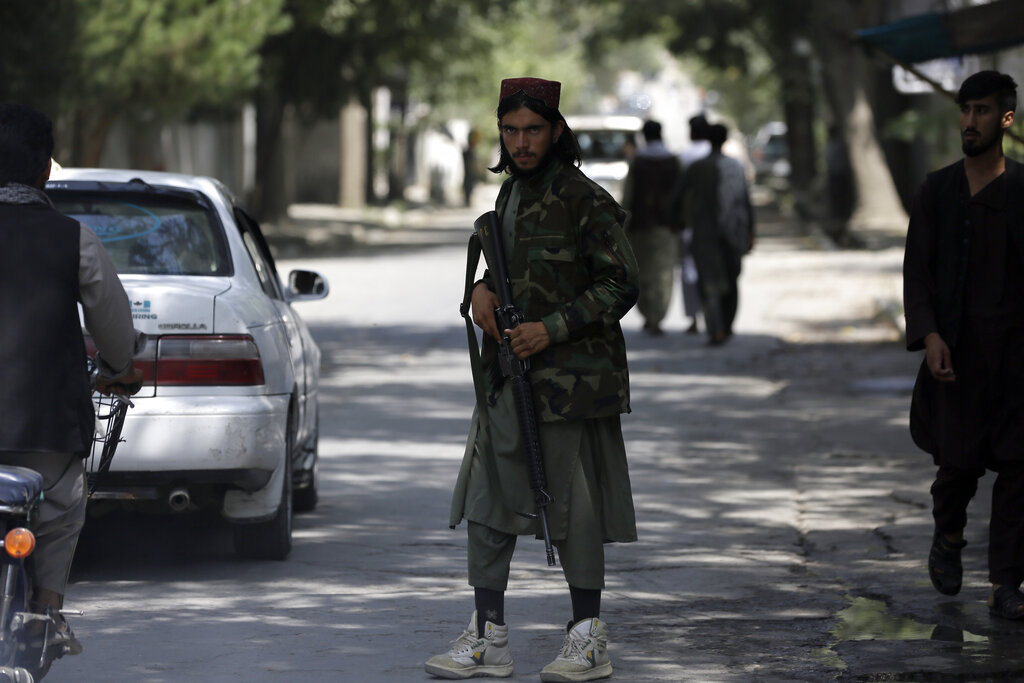The talks ran for several hours in Muscat, the mountain-wrapped capital of this sultanate on the eastern edge of the Arabian Peninsula.
A person close to Steve Witkoff, the U.S. special envoy to the Middle East, acknowledged that the meeting had started and later ended. The source spoke on condition of anonymity to discuss the closed-door talks. Iranian state television also reported their conclusion.
Iranian Foreign Minister Abbas Araghchi told state television after the talks that the parties exchanged written points throughout the day in discussions that he described as “very serious and work-focused.”
“This time, the negotiations were much more serious than in the past, and we gradually entered into deeper and more detailed discussions," he said. “We have moved somewhat away from broader, general discussions — though it is not the case that all disagreements have been resolved. Differences still exist both on major issues and on the details.”
A senior U.S. administration official said that the talks were “positive and productive.”
“This latest round of direct and indirect discussions lasted over four hours,” the official said on condition of anonymity to discuss the talks. “There is still much to do, but further progress was made on getting to a deal. We agreed to meet again soon, in Europe, and we thank our Omani partners for facilitating these talks.”
Omani Foreign Minister Badr al-Busaidi, who has mediated the two previous round of talks in Muscat and Rome, offered a positive note at the end of Saturday's negotiations.
Iran and the U.S. “identified a shared aspiration to reach agreement based on mutual respect and enduring commitments,” al-Busaidi posted on X. “Core principles, objectives and technical concerns were all addressed. Talks will continue next week with a further high level meeting provisionally scheduled for May 3.”
Araghchi arrived Friday in Oman on the eve of the talks and visited the Muscat International Book Fair, surrounded by television cameras and photojournalists. Witkoff was in Moscow on Friday to meet with Russian President Vladimir Putin, and arrived on Saturday to Oman.
Meanwhile on Saturday, a major explosion rocked a port in southern Iran just after the talks began, killing four people and injuring more than 500 others. Authorities offered no immediate cause for the blast, which appeared to have been caused by a highly combustible material — though officials ruled out its oil and gas industry. The private security firm also linked to a shipment of a chemical ingredient used to make missile propellant to the port as well.
Talks turn to experts
From the Iranian side, Iranian Deputy Foreign Minister Majid Takht-e Ravanchi headed up Tehran’s expert team, said Mohammad Golzari, an Iranian government official. Takht-e Ravanchi took part in the 2015 nuclear talks.
The U.S. technical team was led by Michael Anton, the director of U.S. Secretary of State Marco Rubio’s policy planning staff. Anton doesn't have the nuclear policy experience of those who led Washington’s efforts in the 2015 talks.
Iran has insisted that keeping its enrichment is key. But Witkoff has muddied the issue by first suggesting in a television interview that Iran could enrich uranium at 3.67%, then later saying that all enrichment must stop. The demand that all enrichment stop also has been repeated by Rubio.
However, Iranians remain hopeful that the talks could be successful, as the Iranian rial has rebounded from historic lows during which it took more than 1 million rials to buy $1.
“It’s OK to negotiate, to make the nuclear program smaller or bigger, and reach a deal,” Tehran resident Farzin Keivan said. “Of course we shouldn’t give them everything. After all, we’ve suffered a lot for this program.”














